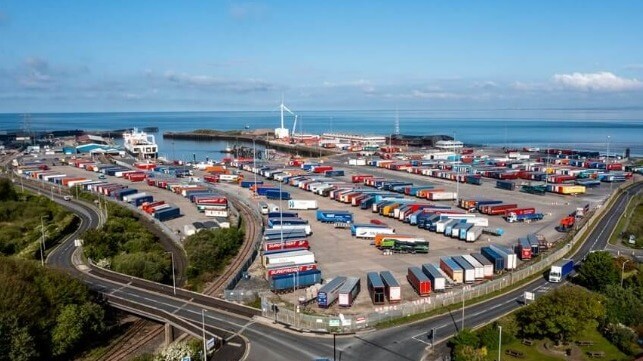Eight Ports in the British Isles Get Electric Ship Charging Stations

The UK’s second largest port operator, Peel Ports Group, has announced plans to establish the first green shipping corridor between the UK and Ireland. This is part of a partnership between the port operator and the marine tech company NatPower Marine. The collaboration will see NatPower Marine develop the UK’s first commercial electric charging network to support electric propulsion and cold ironing (shore power).
The charging infrastructure will require an estimated investment of $127 million and will be delivered across all eight UK and Ireland ports operated by Peel Ports Group. The masterplan of the infrastructure also includes electric car, van and truck chargers for commercial electric vehicles passing through the ports.
This investment in the UK is part of a $3.8 billion global charging network, planed by NatPower Marine for 120 port locations worldwide by 2030.
“NatPower Marine is investing to deploy the largest global network of charging ports to help resolve the ‘chicken and egg conundrum’ facing this industry: shipping lines cannot electrify vessels if port charging infrastructure is not available, and ports are unable to raise capital for charging infrastructure without certainty of demand from shipping lines,” said Stefano Sommadossi, CEO NatPower Marine.
With over 3,000 vessels crossing the Irish Sea every year, emitting 230,000 tons of CO2 and 20,000 tons of nitrous oxide, this partnership may drastically reduce emissions.
The first Irish Sea routes identified in the project proposals include Belfast-Heysham and Dublin-Birkenhead. The small Port of Heysham in Lancashire is on track to become the UK’s first net zero port, according to Peel Ports, and the charging infrastructure will support this goal. Currently, the port is leading in reduction of carbon emissions of its landside plant, equipment and vehicles by up to 90 percent. The port claims that all its vehicles, plant equipment, forklift trucks and ancillary equipment are now operating on either electricity or biofuels.
“The proposals presented as part of this partnership are potentially game-changing, and fully support our ambitions to become a net-zero port operator by 2040,” said Claudio Veritiero, CEO of Peel Ports Group.

that matters most
Get the latest maritime news delivered to your inbox daily.
In the past two years, the UK government has significantly invested in green shipping corridors, an initiative the UK led as part of the Clydebank Declaration during COP 26 in November 2021. Last month, the UK government launched the fifth round of Clean Maritime Demonstration Competition (CMDC 5), with funding of over $900,000 available for start-ups looking to establish green shipping routes to and from the UK.
